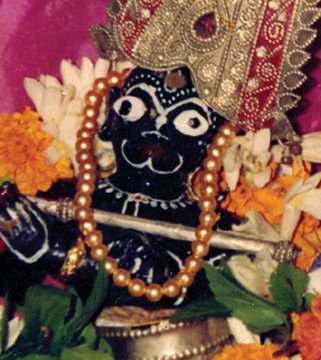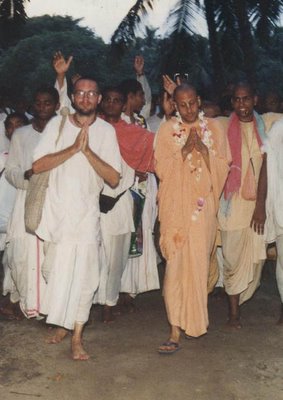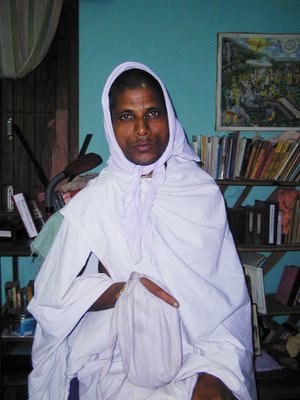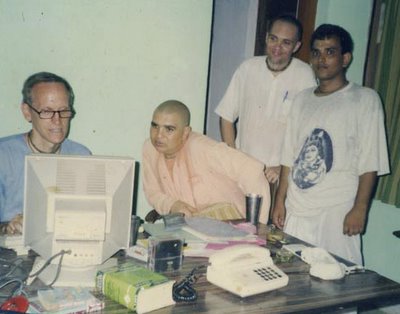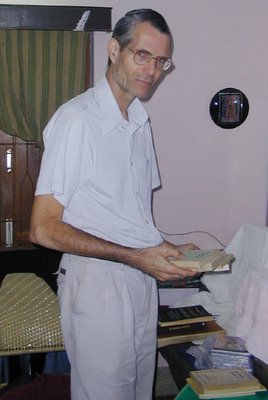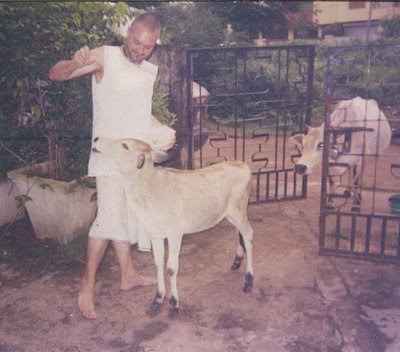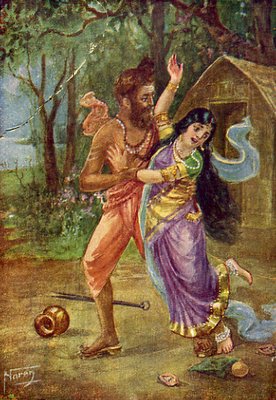
This is an excerpt from Bindu 116. The picture is from an old Bengali version of Ramacarita Manas.
Rev. A. G. Atkins
Mr. A. G. Atkins was a Britisher and a Christian missionary who first came to India sometime before 1916. In order to meet the language study requirements of a missionary he began to read the Hindi version of Ramayana composed by the poet Tulsidas. He quickly became attracted to the story and devotional spirit of the story of Lord Rama and began a careful study of the book that continued for over twenty years. In 1941, on the suggestion of a friend, he began to translate it into English verse. He spent 12 years working on his poetic translation and finally saw the book published by the Hindustan Times in June of 1953. The following is an excerpt from book III, chapter 13.
Now, when Ravan saw that his way had been cleared,
He in hermit’s guise there before Sita appeared;
He who kept gods and demons in such total fright,
That they ate not by day and could not sleep at night,
Himself now afraid, like a dog that is seeking
To steal, looking all ways, came furtively sneaking;
His feet set in evil ways, counting no cost,
Ev’ry trace of strength, wisdom and glory now lost,
He told stories to Sita of customs and laws,
Giving kindly ways, threat'nings and love as his cause;
She replied, “Tho’ in guise of the saintly you speak,
“Full of evil and wrong are the things that you seek.”
Then his true name and form demon Ravan displayed;
Sita, seeing and hearing, was deathly afraid;
She replied, as she rallied her courage and will,
“Wretch! My husband is coming! Stand off and stand still!
“You are doomed, demon ruler; you’re now well-nigh dead,
“Like a rabbit that would with a lioness wed.”
At these words shame and wrath moved him more than before,
At heart feeling, “Here’s one to enjoy and adore!”
Then he seized Sita roughly and angrily, and in
His chariot waiting there placed her;
Altho’ from his trembling he scarcely could drive,
Thro’ the air to his dwelling he raced her. ·
— Pages 885-6. The Ramayana of Tulsidas. Published by Shri Krishna Janmasthan Seva-sansthan. Mathura, India. 1987.








